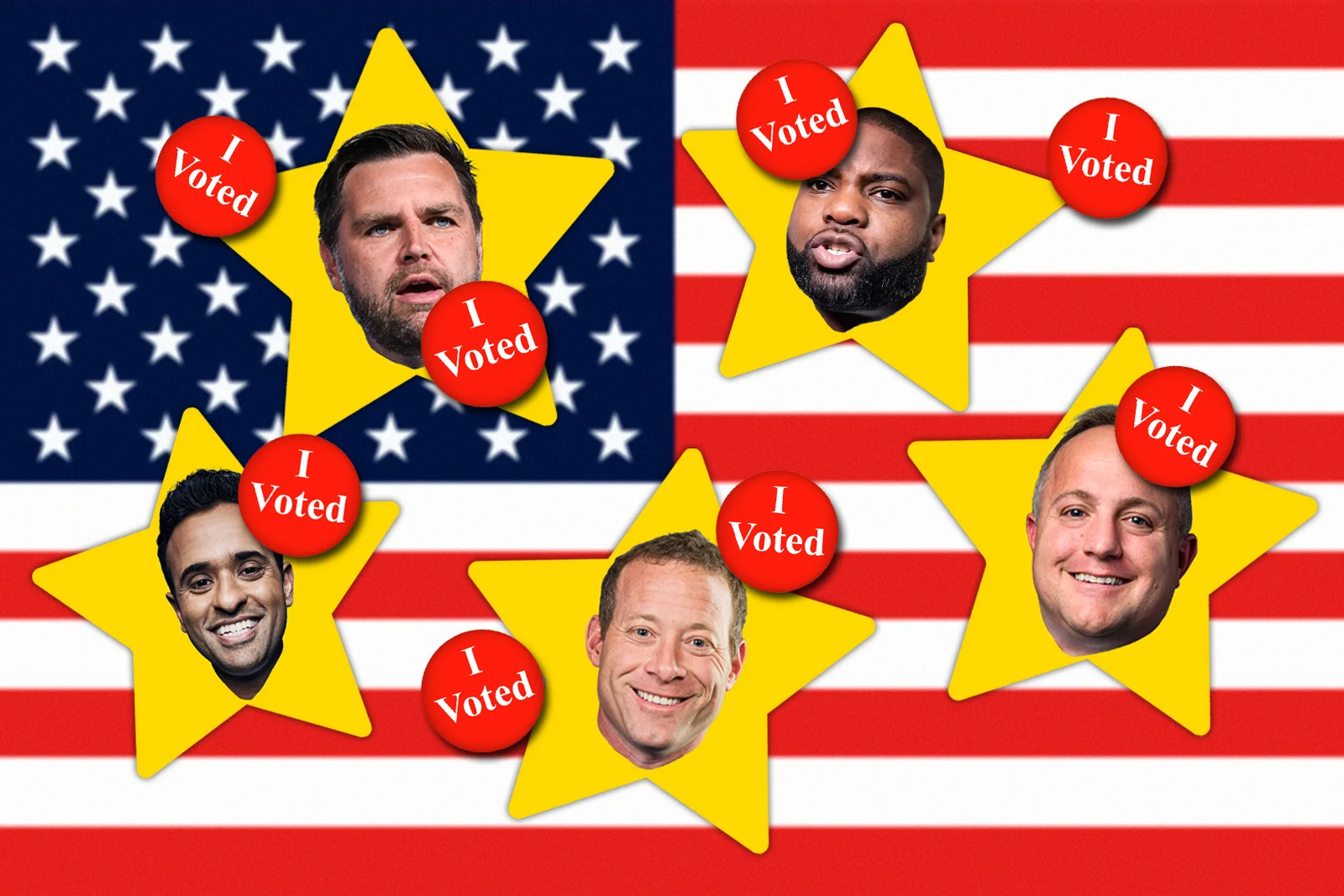
Politics
A Republican’s Take on the Future Rising Stars of American Politics
Many Americans are growing increasingly disillusioned with the political elite. As a 42-year-old first-time political candidate in the deep-red state of Texas, I am often asked—both by people in the U.S. and around the world—whether America has any emerging leaders who can be seen as the future of politics.
The answer, thankfully, is yes.
A new generation of political figures has emerged, some better known than others, and I’m happy to report that many of them seem more interested in solutions than in perpetuating partisan infighting. This group, ranging in age from their late 30s to late 40s, is poised to drive the political conversation forward and potentially reshape the future of American governance.
As a Republican, I’ll admit I’m more familiar with the GOP contingent, but the emerging stars are not confined to one party. From media darlings like J.D. Vance, Tulsi Gabbard, and Vivek Ramaswamy to lesser-known figures such as Josh Gottheimer, Russell Fry, Byron Donalds, and Anna Paulina Luna, these leaders stand out for their authenticity, direct engagement, and rejection of traditional political molds.
The high-profile names
At 40, J.D. Vance no longer needs much of an introduction. Once known as the voice of the working class, Vance shot into the national spotlight with Hillbilly Elegy. He has since transitioned from author to senator and now to vice-presidential candidate, symbolizing a GOP shift toward appealing to blue-collar voters. His rise reflects a pivot within the party toward economic nationalism and away from globalist policies. Vance’s story, rooted in the struggles of rural America, resonates with those left behind by rapid cultural and technological changes. His vice-presidential candidacy suggests a strategy to win back the heartland, with a focus on industrial revitalization, secure borders, and a critique of elite overreach.
Similarly, many expected 39-year-old Vivek Ramaswamy—with his background in biotechnology and finance, along with his energetic speeches—to be Trump’s VP pick. Though that didn’t happen, Vivek remains an important figure. His ability to bridge the innovation ethos of Silicon Valley with conservative politics is rare. His brief campaign brought corporate America’s alignment with progressive causes, especially around environmental, social, and governance (ESG) issues, into the political spotlight. Ramaswamy’s ability to simplify complex economic topics resonates with both the tech-savvy and the economically anxious, proposing a future where free markets and individual liberty reign supreme.
Tulsi Gabbard’s journey, like that of J.D. and Vivek, has been unconventional. At 43, she has transformed from a Democratic presidential candidate into a vocal critic of her former party. Gabbard’s military service and her willingness to challenge her party’s stances on foreign policy and social issues make her a unique figure capable of appealing across party lines. Her pragmatic, less polarized approach to governance taps into a growing desire for practical solutions rather than ideological purity.
The lesser-knowns
Byron Donalds and Anna Paulina Luna, both from Florida, bring a new face to the GOP. Donalds, a 45-year-old African American from Brooklyn, focuses on fiscal conservatism and community uplift. Luna, just 35, comes from a diverse background: raised in California by a Mexican-American mother and a father of Mexican and German descent, she embraces her roots and her military background in advocating for veterans. These two represent the GOP’s ongoing efforts to diversify, offering a fresh perspective on conservative values.
On the Democratic side is Josh Gottheimer, a 49-year-old from New Jersey who is known as a bipartisan dealmaker. Dubbed the “bipartisan broker,” Gottheimer’s work with the Problem Solvers Caucus has made him a standout in an increasingly polarized Congress. His pragmatic focus on issues like infrastructure and healthcare offers a blueprint for future politicians seeking to cut through the gridlock. His model could inspire a new generation of leaders who prioritize governance over party loyalty.
Lastly, there’s Russell Fry, a 39-year-old representing Myrtle Beach in the U.S. House. His local focus, combined with a national perspective, positions him as a rising star in the conservative movement. Fry’s ability to connect with younger voters, particularly around issues like technology and privacy, adds to his appeal.
A new political vanguard
What unites this group isn’t just their personal stories. Collectively, they represent a shift toward a more authentic politics, one less scripted by party dogma. Americans are tired of division, and this cohort reflects a public yearning for leaders who can offer real solutions.
Several trends stand out from this rise. First, figures like J.D. Vance and Anna Paulina Luna underscore a return to grassroots politics, with a focus on their constituents’ immediate needs rather than ideological battles. Second, bipartisanship is making a comeback—at least in theory. Figures like Gottheimer exemplify this trend, and it’s one that Americans increasingly demand. Politicians should be judged on their ability to deliver results, not their partisan loyalty. Third, these leaders come across as genuine—frustrated by the same issues that ordinary Americans are. Unlike older politicians who have grown detached from everyday life, this new group seems in touch with the public’s struggles and aspirations.
Finally, the rise of tech entrepreneurs like Ramaswamy suggests that business acumen will increasingly influence political strategy, potentially merging innovation with governance in new ways.
I realize this list is short and leans Republican, but I encourage others to create similar lists for figures across the political spectrum. We should give credit where it’s due, regardless of party.
As we approach another critical election, with much attention on the Trump vs. Harris contest, don’t forget to watch these rising stars: Russell Fry, J.D. Vance, Tulsi Gabbard, Vivek Ramaswamy, Josh Gottheimer, Byron Donalds, and Anna Paulina Luna. These leaders are not only on the rise but are likely to be key architects of a new political era. Their success—or failure—will help define the future contours of American political engagement for years to come.
